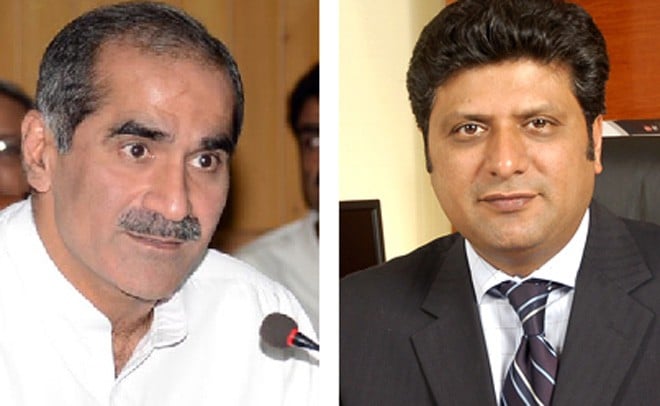
So, is it time for the Judicial Commission to summon Tariq Malik, former chairman Nadra, as a witness

The appointment of an impartial chairman of the National Database Registration Authority (Nadra) was on top of the agenda in the negotiations between Pakistan Tehreek-e-Insaf (PTI) and Pakistan Muslim League-Nawaz (PML-N) for the formation of a Judicial Commission. The commission was to probe ‘systematic rigging’ allegations in the 2013 general elections.
The role of Nadra is crucial not only for the proceedings of judicial commission but for elections tribunals as well. The election tribunal which has disqualified Khawaja Saad Rafique after it found irregularities in the election of NA 125 also mentioned Nadra’s report on the constituency.
Though, a source at Nadra terms the Nadra report of NA-125 as "the most favourable" for the government. "Nadra authenticated only 603 thumb impressions in the constituency and only 14 out of them could not be verified, mainly because of the poor quality of the impressions," he says. "Nadra’s report is only one of the evidences among many. There is no pressure on the management from the government side."
Chairman PTI, Imran Khan, also met chairman Nadra Usman Mobin on May 6, 2015, and said the authority would release the report on rigging in NA-122, the constituency of speaker National Assembly Ayaz Sadiq. Chairman Nadra later denied that he had shared any report on NA-122 with the PTI chief. "The report is sealed and that neither the report, nor any part of it was shared with Imran. The report would only be shared with the election tribunal," he told the media on May 6.
Officials at the Election Commission of Pakistan say the Judicial Commission can not come up with a clear stance on ‘systematic rigging’. "The maximum it could do is point out at a confused result like the one that the election tribunal gave in the NA-125 case. It has disqualified Khawaja Saad Rafique but has failed to pinpoint systematic rigging or culprits. This is a win-win situation for both PTI and PML-N," says one official, on condition of anonymity. He says the whole process seems a continuation of what Tariq Malik, the former chairman Nadra, had started.
Tariq Malik, who as chairman Nadra had initiated thumbprints verification on ballot papers cast in NA-118, Lahore in November 2013 on the directions of election tribunal, was sacked from his job by the prime minister in December 2013. He was later reinstated by the Islamabad High Court according to which his termination was linked with the voters’ thumb impression verification process.
The government at the time was not ready to allow him to work independently. Malik later resigned from his office because of the alleged pressure tactics initiated by the government against him and his family.
"One must admire the role played by Tariq Malik. He resisted all the pressure from government side and worked according to rules," says Khawar Ghumman, Islamabad-based senior journalist who covers politics and interior ministry. "He has left a legacy for his predecessors who are forced to follow certain SoPs when it comes to investigating election rigging."
"When Malik started the thumb verification process, there was no political consensus on systematic election rigging but his removal gave a new life to rigging accusations by the PTI. Now, there is a consensus among political parties over the issue of rigging," says Ghumman, adding that the Nadra report of NA-122 would play a crucial role. He says even a confused judgment by the Judicial Commission would be a big blow for the government. "The main mandate of the commission is to find out whether the 2013 elections are a true reflection of voting patterns. Even if the commission ends up saying it is not sure whether the results of the last elections are a true reflection of the voting pattern or not, it would mean PML-N has lost its case."
Many political commentators agree that Tariq Malik is one of the most important witnesses who should be summoned by the Judicial Commission.
Tariq Malik, communicating with TNS via telephone and email, says the commission has not summoned him yet. "I will come if the Judicial Commission summoned me to give my point of view. I believe helping the commission is a national duty. I don’t see it as settling personal scores but helping the nation to steer towards a free, fair and transparent electoral system," says Malik, who is in the US at the moment.
According to him, the commission is investigating not only systematic rigging but other electoral irregularities as well. "I see the formation of the commission as a positive sign. I see it in the perspective of electoral reforms. In order to introduce electoral reform, one must know what’s wrong with the system. Hopefully, the commission can point the nation in that direction. Then it would be the job of legislators to plug the holes in electoral laws."